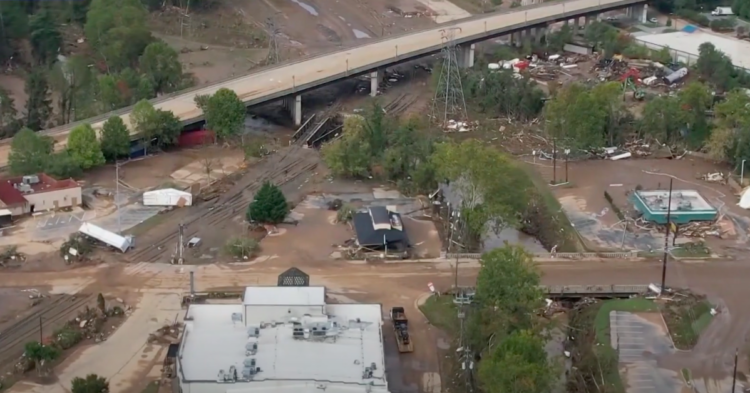Hurricane Milton is bearing down, and officials have just released life-saving steps for those in its path. With extreme winds, dangerous storm surges, and widespread flooding expected, these six key precautions could be the difference between life and death.
Here’s everything you need to know to stay safe and protect your loved ones!
Hurricane Milton is poised to cause serious damage as it nears the Gulf Coast, affecting cities from Louisiana to Florida.
Embed from Getty ImagesThe Category 4 storm is packing winds over 140 mph, which means potentially serious damage to homes, infrastructure, and the possibility of power outages lasting days or even weeks. Evacuation zones are already in place, and authorities are urging people to act fast before the storm intensifies.
Milton is part of a disturbing trend of increasingly powerful hurricanes. Recent years have seen an uptick in storm severity, with hurricanes causing $51 billion in damage in the U.S. just in 2020 alone.
Embed from Getty ImagesThese storms aren’t just coastal problems — they can affect people far inland as well, bringing flooding and widespread destruction.
With storm surges up to 15 feet predicted, Milton could cause extreme flooding even miles inland.
Embed from Getty ImagesExperts are already comparing it to past hurricanes like Katrina, which caused over 1,800 deaths and massive devastation.
By following the six key steps outlined by emergency services, you can protect yourself from the worst.
1. Prepare, prepare, prepare
Embed from Getty ImagesGet those emergency kits ready! Stock up on essentials — water, non-perishable food, medications, and pet supplies. Charge your phone and backup batteries. Clear drains, secure outdoor furniture, and consider installing hurricane shutters.
Preparation is everything when it comes to hurricanes, so make sure your household has a solid plan in place.
2. Stay informed
Embed from Getty ImagesKnow your evacuation zone and practice the routes with your family and pets. Check local authorities’ updates frequently — they’ll tell you if you need to leave ASAP. Following real-time updates is key to stay ahead of any emergency orders.
Having a safe evacuation plan could make all the difference.
3. Check up on your neighbors
Embed from Getty ImagesHelp out your neighbors, especially the elderly or those needing extra assistance. Keep an eye on those who live around you, and offer help where you can. Whether it’s securing their home or ensuring they have enough supplies, a little community support can go a long way.
4. Stay out of the flood water
Embed from Getty ImagesFloodwater is more dangerous than it looks. Just six inches of fast-moving water can sweep you off your feet, and one foot can carry away a vehicle. Avoid walking, swimming, or driving through it at all costs.
Furthermore, there could be dangerous objects and debris moving through the water that could seriously injure you or worse.
5. Reroute
Embed from Getty ImagesFloodwaters can be deceptively strong. Even shallow water can cause your car to lose control and be swept away. No matter how tempting it might be to push through, the best advice is simple: turn around and find a safer route. It’s not worth the risk.
6. Don’t forget about your mental health
Embed from Getty ImagesStress levels can go through the roof during a natural disaster like this, and it’s important to check in with yourself and others. Stay connected with loved ones and seek support when you need it. Preparation goes beyond physical safety — your mental well-being is just as important!















































